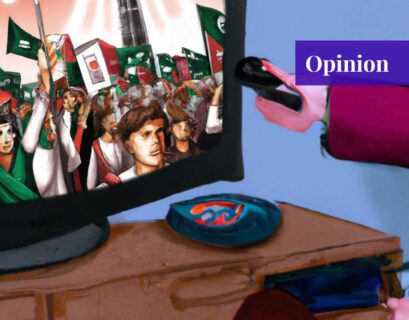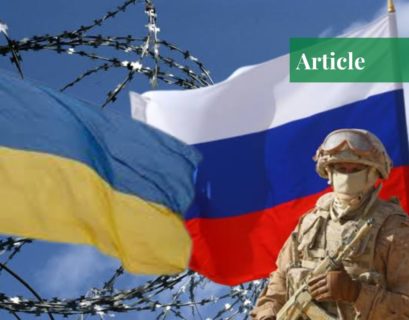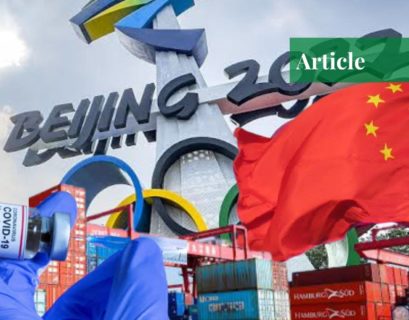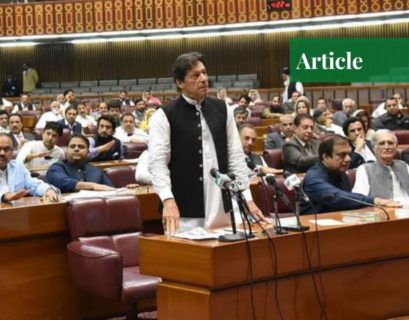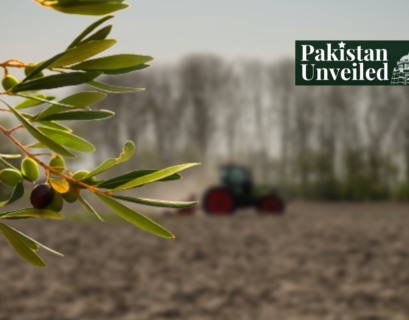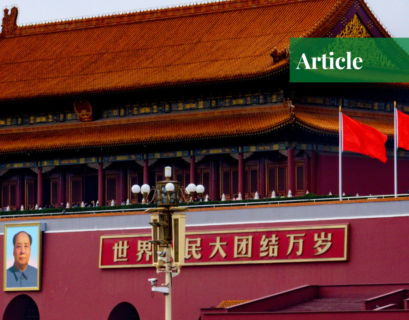A National Circus: The Game of Power and the Neglected Masses
“Why are people fighting on TV?”, an innocent child asked his mom, after watching the clash between the police and the protesters last week on TV.
This question prompted Zuha Tiwana, the mother of that child, to pen down the consequences that the national-level circus has had on the public’s welfare.
Russia’s Conflict with Ukraine: An Analysis of the Past & Present
Since October 2021, the number of Russian troops at the Russia-Ukraine border has reached more than 127,000. Moscow’s decision to deploy more troops is a cause for concern for Ukraine and the NATO member states, especially the US, as they believe that Russia is preparing to invade its neighboring state. Zuha Tiwana explains that Russia’s conflict with Ukraine has now become a global issue. She argues that if the conflict persists, and NATO imposes new sanctions on Russia, the latter might retaliate by cutting off its natural gas supply to Europe.
Is China’s Soft Power Being Affected by Its Negative Global Image?
China’s “wolf warrior diplomacy” and its human rights abuses have caused its global image to become increasingly negative. With China’s soft power declining, and its policies becoming aggressive, the international community has started to distrust the state. As a consequence, states like the US, Australia, and Britain have boycotted the 2022 Beijing Winter Olympics. The author, Zuha Tiwana, asserts that this mistrust has caused the favorability of the Belt and Road projects, among the European states, to decline. The European Union has even put investment agreements with China on hold.
A Book Review of ‘Why Nations Fail’
‘Why Nations Fail: The Origins of Power, Prosperity, and Poverty’ attempts to depict the global situation that has left more than 5 billion people living in abject poverty to earn less than $2 a day. Daron Acemoglu and James A. Robinson provide answers to such disparities. The book had been a great point of discussion back in 2012 among political scientists, institutional theorists, and development economists.
The Governance Structure of Pakistan: Studying the Federal, Provincial & Local Governments
The article explores the hierarchical system of the administrative machinery in Pakistan at the federal and provincial levels. Pakistan follows a federal system which makes the federal and provincial governments exclusive from one another. The executive, legislature and judiciary have been divided clearly between the federation and provinces after the eighteenth amendment. According to the constitution of Pakistan, fields like defence, foreign matters, customs, telecommunication and railways are to be handled by the federal system, whereas the ministries of education, health, local administration, sanitation, agriculture and industry are under the provincial setups.
Information about CSS in Pakistan: Examination, Grades, Groups & Pay Scales
In Pakistan, the bureaucracy serves as the backbone in running the state machinery. Thus, government jobs are the priority of the youth because of the power, job security, and benefits that come with the role. The Federal Public Service Commission (FPSC) recruits ideal candidates for these lucrative jobs majorly through the Central Superior Services exams (CSS). The author, Zuha Tiwana, provides a detailed view of the CSS process – discussing the exams, interviews, common training, and eventual allocations.
What Is IUU Fishing & Why Is It a Problem?
The author, Zuha Tiwana, considers illegal, unreported and unregulated fishing — more commonly known by the acronym IUU — to be a global threat to marine life.
IUU fishing exposes economies excessively dependent on fishing to danger and hence nations, regional maritime bodies, non-governmental organizations, and international bodies must jointly and severally take measures against IUU fishing.
The Potential of Farming Olives in Pakistan
Pakistan, an agricultural state with several types of soil, ecological zones, and climatic conditions, has enormous potential for olive cultivation. Pakistan’s cultivable land for olives is far more than that of Spain’s, yet, it has failed to fully utilize the available resources. The author, Zuha Tiwana, notes that since the 1950s, the state has launched several projects – some with the collaboration of the Italian government – to enhance Pakistan’s olive cultivation and the manufacturing of its olive products. She argues that if Pakistan wants to enter the neighboring market for these commodities, China is its most feasible option.
The Communist Revolution in China
The author, Zuha Tiwana, narrates the Communist revolution that entirely changed the political and social trajectory of China.
Mao Zedong, likened to Emperor Qin, executed ruthless actions – all for the sake of preserving China’s legacy.
